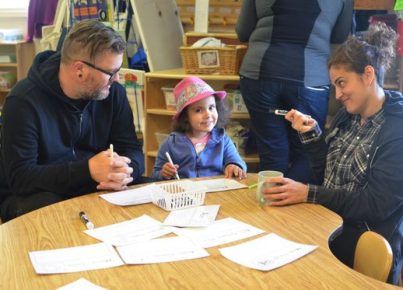A strong home-school partnership can significantly contribute to a child’s academic success and overall development. An effective alliance between primary parents and educators not only supports the students but also creates an environment where learning becomes engaging and enjoyable. This article explores the importance of building a home-school partnership with primary parents and offers practical strategies for achieving it.
Why Develop a Home-School Partnership with Primary Parents?
1. Improved Academic Performance: Numerous studies have highlighted that children perform better academically when their parents are actively involved in their education. A strong partnership facilitates better communication, allowing educators to understand a child’s strengths, weaknesses, and learning styles more effectively.
2. Positive Attitude Towards Learning: A supportive alliance between primary parents and educators fosters a love for learning in children, making them more motivated and confident in their academic pursuits.
3. Emotional Well-being: When parents and educators work together, children feel secure, valued, and understood. This sense of belonging contributes to their emotional well-being and growth.
4. Enhanced Problem-solving Skills: The combined efforts of parents and teachers help identify possible issues early on, empowering them to develop strategies that address a child’s unique needs.
5. Strengthened Sense of Community: A strong home-school partnership builds trust among all stakeholders, fostering mutual respect and collectively working towards the best interests of the children.
How to Develop a Strong Home-School Partnership with Primary Parents
1. Establish Clear Communication Channels: Open lines of communication are critical in developing any relationship. Ensure that parents are aware of the various platforms they can use to connect with teachers – emails, phone calls, parent-teacher meetings, or school apps.
2. Encourage Parental Involvement: Invite parents to participate in school activities such as volunteer programs or special events to give them opportunities to connect with the school community and gain insights into their child’s learning environment.
3. Regularly Share Updates: Keep parents informed about their child’s progress through regular reports, updates, or parent-teacher meetings. Appreciate their achievements and address concerns with empathy and understanding.
4. Offer Parent Education Programs: Organize workshops or training sessions on relevant topics, such as child development, parenting strategies, curriculum expectations, or learning support tools. This empowers parents to contribute effectively to their child’s education and provides helpful resources.
5. Create a Welcoming Environment: Make the school premises warm and welcoming for parents. Cultivating an inclusive atmosphere goes a long way in building trust and establishing strong partnerships.
6. Respect Cultural Diversity: Acknowledge and respect the diverse backgrounds of families in your school community. Encourage open dialogues to promote cultural understanding and create inclusive learning environments for all children.
In conclusion, a robust home-school partnership with primary parents is crucial for a child’s holistic development. By adopting practical strategies like open communication, parental involvement, regular updates, education programs, welcoming environments, and embracing diversity, schools can nurture lasting relationships with primary parents that ultimately benefit the children and the entire school community.





